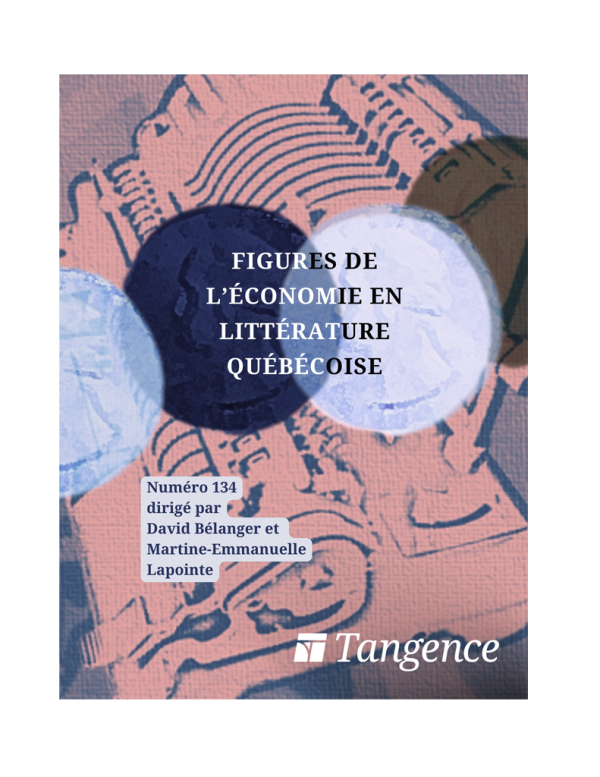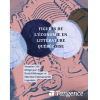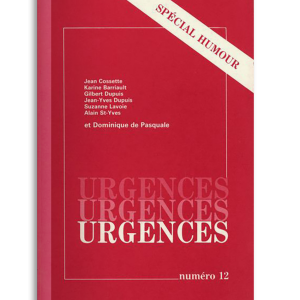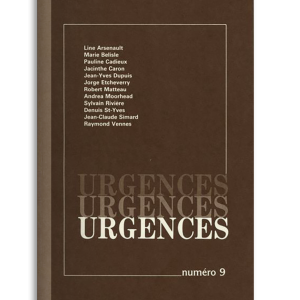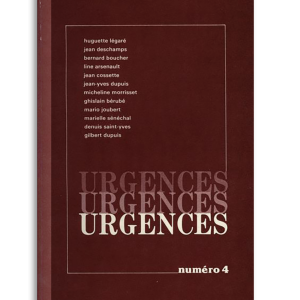The end of the notary. A figure in question (1945-1959)
David Bélanger
This article analyzes the figure of the notary at the moment of his decline. It discusses first, the classical figure of the notary in two nineteenth-century works, La terre paternelle (Lacombe, 1846) and Charles Guérin (Chauveau, 1846), and second, deviations from the classical representation during the years 1940-1970, which involved risk evaluation (real estate and no longer immovable property) and the balance of “assets” against “liabilities.” The texts of Adrienne Choquette (1948), Pierre Gélinas (1959) and Hubert Aquin (1953 ; 1959 ; 1972) are analyzed from this perspective. Thus, starting with the concept of “notary” versus “banker” (or entrepreneur), the article proposes to show how the texts, in their representations of the notary, associate this figure with conservatism and fear of risk, which inhibits poetry and creation. The entrepreneur, on the other hand, becomes the figure to focus on in literature (écrivain faute d’être banquier [writer because unable to be banker], wrote Hubert Aquin). Still, these readings are careful to avoid associating these representations with the economic order and aim, rather, to link them to an economic imagination at work in the texts.
Affairs and feelings : the figure of the businessman in post‑war romance fiction in Quebec
Marie-Pier Luneau and Jean-Philippe Warren
The novels published in installments by Éditions Police-Journal enjoyed unprecedented popularity from the 1940s to the turn of the 1960s. The collection Roman sentimental constitutes a privileged vantage point from which to study the development of a new fantasy allowing the working classes to dream about material comfort and even, occasionally, great wealth. Supported by some twenty novels, this article discusses the negotiations between this desire for wealth and the danger of dissolution of French-Canadian identity by examining the figure of the businessman (and, exceptionally, the businesswoman) as a particularly enlightening narrative axis.
Women, literature and economic imagination in Quebec. The case of the romance fiction of Gabrielle Roy and of Jean Despréz published in La Revue moderne at the turn of the 1940s
Adrien Rannaud
This article examines the notion of economic imagination as seen in the romantic fiction of Gabrielle Roy and of Jean Despréz (writing under the name Carole Richard) published in La Revue moderne at the turn of the 1940s. Two theories are explored. On one hand, an analysis of the characters, spaces and scripts in the texts shows how the relationship between economic action and sexual and emotional action is expressed as a strict interdependence. On the other, in the face of an economic and conjugal happiness guided by the principle of temperance, the novels are driven by dynamics of distinction that reflect both a marked interest for the exchanges and goods associated with an emerging middle class culture and a criticism of this same culture and its pretensions to sophistication. The present article thus leads to a better understanding of the relationships between fiction, middle class culture and media system in the mid-twentieth century and proposes avenues of study for a future project on the traces of an economic imagination in Quebec women’s literary productions.
A narrative of absence : economic reflections based on David Fennario’s Without a Parachute
Rachel Nadon
This article discusses what we have termed a “narrative of absence” of economic life in Quebec literature based on the case of David Fennario and his autobiographical work Without a Parachute (1972), translated by Gilles Hénault and published by Éditions Parti pris in 1977. The book’s narrator, employee of the company Simpsons, student and Marxist militant, criticizes and takes stock of society’s injustices. On one hand, we show how the diary of the “worker” criticizes working hours from the perspective of a collective workers’ memory. On the other, we analyze how revolutionary militancy in Without a Parachute remains a figure of speech, even of lyricism. By borrowing from the history of publishing, literary history and the study of representations, we propose to examine the relationships between Without a Parachute and the catalogue of Parti pris as well as the historicity of representations of the worker and the militant, two sides of the same coin.
Figures of the “bad pauper” in some contemporary Quebec literary essays
Martine-Emmanuelle Lapointe
The figure of the bad pauper, complex and ambiguous, has marked a substantial number of published works in Quebec since the Quiet Revolution. From cultural alienation to the illegitimacy of a subject squatting on land belonging to others to criticism of materialism and xenophobia, it betrays an uneasy relationship to the land that is redefined over time concurrent with readers’ obsessions. In the present article we reexamine certain observations by critics who insist on the links connecting the bad pauper to the culture broadly speaking, one based necessarily on activities of exchange and power both economic and social. We next discuss three contemporary essays, Confessions d’un cassé by Pierre Lefebvre, Bande de colons by Alain Deneault and L’œil du maître by Dalie Giroux, to discover how these writers deal with the issue of property and, beyond this, the bad pauper’s place in the social and political order. Rarely reduced to its strictly monetary aspect, the question of the economy is present throughout my corpus of texts and is purposely intertwined with issues regarding cultural capital, awareness of the debt to the past and land ownership.
Autobiographical narrative and poverty. Political stakes of transclass writing
Stéphane Inkel
The transclass posture, as defined by Chantal Jaquet, allows for an empathetic look at a popular culture sometimes poverty-ridden. To the extent the reconfiguration of contemporary political struggles supposes the establishment of new political identities, in accordance with Ernesto Laclau and Chantal Mouffe, the autobiographical narrative of transclass writers proves all the more valuable in that it supposes a unique capacity to navigate between discourses : those of their background class and their class of arrival. This option to move from one code to another, from one neighbourhood to another, demonstrating the size of the inequality gap through narrative, is evident in the works Burgundy by Mélanie Michaud and Mélasse de fantaisie by Francis Ouellette.
The Noir Canada affair : the book under pressure in the economic‑legal regime
Aurélie Lanctôt and Julien Lefort-Favreau
This article studies two essays published on the occasion of the tenth anniversary of the Noir Canada affair. Through a discussion of Le droit du plus fort by Anne-Marie Voisared and Procès verbal by Valérie Lefebre-Faucher, it aims to highlight the effects of the law-economics relationship on the book industry and freedom of expression. An analysis of these two essays examining the SLAPP lawsuit to censure the publishing house Écosociété points to a specific feature of the economy, that is, its manifestation in the legal system. The game of interests, transactions and negotiations highlighted in these essays traces an economic imagination of the law which is, simultaneously, a reflection on power and its methods of repression. This article proposes to report on the emergence of the economic analysis of law and the subordination of the legal system to the economic sphere. We argue that “law-economics”—that is, the law as the voice of, and the power to implement, economic principles—is defined precisely against literature. We also seek to understand how law-economics impacts notions of fiction and language. Finally, we attempt to understand how the characterization of the profession of editor in these books is at once a repetition and an updating of a long history of literary and censorship trials.

